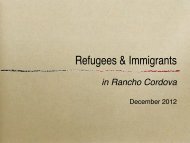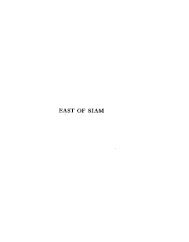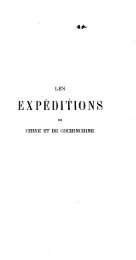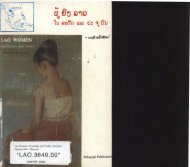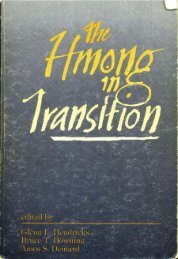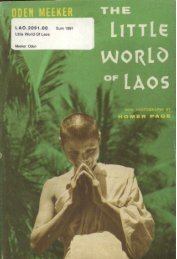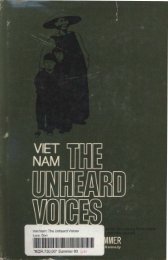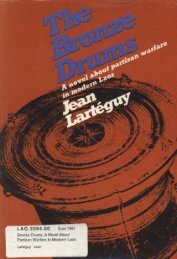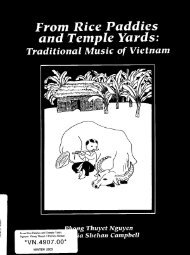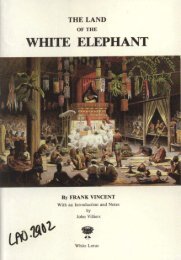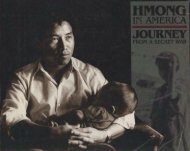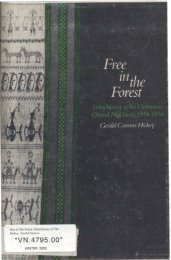PEOPLE
Grant, The Boat People - Refugee Educators' Network
Grant, The Boat People - Refugee Educators' Network
- No tags were found...
You also want an ePaper? Increase the reach of your titles
YUMPU automatically turns print PDFs into web optimized ePapers that Google loves.
The h r People<br />
According to one authoritative mrce, the committee's conclusion,<br />
Pmounttd to 1 recommendation not to do anything abut Vietnam,<br />
but not to be seen to be doing nothing'.<br />
If America's immediate Vietnam policy was effectively in limbo,<br />
paralpcd by political inhibitions and Hanoi's pcmivcd inbansigence,<br />
its long-term strategy was equaHy uncertain. There was, however,<br />
brd agreement among policy-muken in the stare dtpamnent,<br />
the Pmtagon and the national security council that nvo options were<br />
available. The fYst was co-option: to entice Vietnam into thc South-<br />
East Asian community by a combination of incentives and penaltids<br />
comparable to those propostd by Edward Kennedy: 'In response to<br />
positive steps by Viemam, Japan could resume its suspended assistance<br />
and the US could make exceptions to our current trade<br />
embargo, In the event of continued confrontation [with China] and<br />
conflict [in Ind~China] WE could increase our economic and military<br />
assistance to key ASBAN states and they could cut political and<br />
other relations .with Hanoi.' This meant, effectively, that unless the<br />
US or one of its allies (Japan or ASEAN) took the initiative (and bat<br />
was improbable, perhaps impermissible, until after the 1980 prcsidential<br />
election), Ameria would be confined to a policy of reaction.<br />
It could only wait for a hint of compromise or o sign of repentance<br />
from Hanoi.<br />
The second option was coercion: a deliberate strategy of 'queezing'<br />
Vietnam by every means available to compel it to take a more<br />
cospative position on Kampuchea and the refugee problem and<br />
to back away from the Soviet Union. It might even be possible to<br />
create the conditions for a change of leadership in Hanoi. Victnam,<br />
was thought, especially by defence and nationrl sccuriry analysts, to<br />
be susceptible to such a strategy. Its economy was in a steady decline.<br />
Domestic prduction was dropping, the country was importing 20<br />
per cent of its rice and the transport sysrem seemed on the point of<br />
collapse. The danger was that coercion might consolidarc the present<br />
leadenhip and drive it closer to Moscow.<br />
To a degree rhe US was already engaged in a strategy of coercion,<br />
simply by withholding recognition md maintaining its trade<br />
embargo. Moreover, urged on by some of the MEAN states (especially<br />
Thailand, the country most immediately vulnerable to Vietnamese<br />
pressure), it had actively encouraged other governments ro cur their<br />
Stability<br />
aid to Vietnam (Japan and Australia were mmong those who hnd<br />
rcspondcd) and had Id the campaign to choke &funds for Viemam<br />
from international lending institutions like the World Bonk and the<br />
International Development Association,<br />
But, as mote than one defence sacurity otkial was quick to point<br />
out, it was China that was doing the serious squeezing - by maintaining<br />
the threat of another military intervention. The gcneml expcctation<br />
in Washington was that if China did go into Vieham again,<br />
its intentions would be, as one defence official said, 'therapeutic nor<br />
pdagogic - not to teach Vicmam another leason, but to get rid of<br />
Le Duan (secremry general of the Viemamese communist party] and<br />
he Russians'. The possibility of another Chinese military action in<br />
Viemam was the cause of considerable strategic ambivalence in<br />
Washington, In the state dcpmmcnt, in particular, there was serious<br />
concern that it wwld prompt Russian intewcnrion and develop into<br />
a major regional conflict, But there were some officials, especially<br />
in rhe Pentagon, who were willing to contemplate that risk and positively<br />
welcomed the prospect of the Chinese 'hammering' the Vietnamese,<br />
even if (especially if, in the case of the more forthright) the<br />
Russians b ame involved.<br />
* * *<br />
The vim from Moscow was that the refugee problem reflected the<br />
refusal of the US and China to accept the 'mlity' of the new Vietnam.<br />
In the Sovia view, the refugee problem was simply a continuation<br />
of the Vietnam war, stamd by the French, taken over by the<br />
Americans and now being carried on by the Chinese. The US and<br />
China carried the primary responsibility for what had happened and<br />
was happening and the solution lay with these two countries rather<br />
than with Vietnam. The boat people as such did not greatly concern<br />
Moscow, as they were unlikely to seek helm in the Soviet Union.<br />
The politial effccr of the exdus from Vietnam, however, was of<br />
great interest to Soviet policy-makers. Some such exodus over a Iong<br />
period was inevitable, given the fact that nearly two decades of<br />
Amerian occupation of south Vietnam had created an artificially<br />
consumer-oriented society: thme who had become accustomed to it<br />
were unlikely to feel happy or secure in an ~usterely communist<br />
Vietnamese society. Bcset with a severe economic crisis, the





